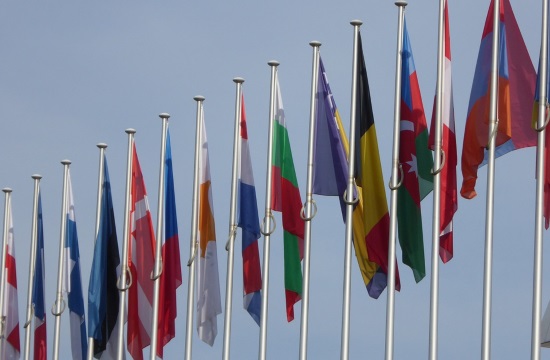-
Tips for becoming a good boxer - November 6, 2020
-
7 expert tips for making your hens night a memorable one - November 6, 2020
-
5 reasons to host your Christmas party on a cruise boat - November 6, 2020
-
What to do when you’re charged with a crime - November 6, 2020
-
Should you get one or multiple dogs? Here’s all you need to know - November 3, 2020
-
A Guide: How to Build Your Very Own Magic Mirror - February 14, 2019
-
Our Top Inspirational Baseball Stars - November 24, 2018
-
Five Tech Tools That Will Help You Turn Your Blog into a Business - November 24, 2018
-
How to Indulge on Vacation without Expanding Your Waist - November 9, 2018
-
5 Strategies for Businesses to Appeal to Today’s Increasingly Mobile-Crazed Customers - November 9, 2018
Southern European leaders call for action to boost flagging EU growth
Slovakia’s Minister of Finance Peter Kazimir answers questions to the media upon his arrival for the informal meeting of ministers for economic and financial affairs in Bratislava, Slovakia, Friday, Sept. 9, 2016.
Advertisement
Greece is expected to fulfill 15 reforms this month, including privatization plans and energy sector changes, to get €2.8 billion from its bailout program.
Under a deal signed a year ago with euro zone countries, the European Central Bank and the International Monetary Fund, Greece can receive financial assistance of up to 86 billion euros by 2018 in return for agreed reforms.
Greece has already received two bailouts in 2010 and 2012, worth a total of Euro 240 billion (USD 272 billion) from its creditors following the economic crisis in the Southeast European country back in 2009.
“As the Eurogroup, we took the more general point and message that the summer is over, we really need to restart and pick up on the time lost”, Jeroen Dijsselbloem, the head of the euro zone finance ministers, said after talks in Bratislava.
“They did a lot, but a lot of homework is ahead of them”, he said at the start of a two-day meeting of European finance ministers. The national debt is set to peak this year at a whopping 182.8 percent of gross domestic product, according to European Commission estimates.
“It’s not a secret. that there is a lot to be done to complete these reforms”, he said.
European Union leaders were scheduled to meet in Bratislava next week.
The aim was to enhance coordination and cooperation and introduce a Mediterranean perspective into the European Union’s agenda to deal with joint challenges relating to migration, security and the economy, they explained.
The summit in Athens drew criticism from German lawmaker Manfred Weber who chairs the European Peoples Party Group in the European parliament.
Migration spokesman Giorgos Kyritsis said on Friday that his country, which hosts a bulk of the refugees in the continent, can not afford to take in more asylum seekers from other European countries.
Advertisement
With the EU economy struggling with anemic levels of growth, the European Central Bank has urged governments across the eurozone to do more to improve economic fundamentals.





























